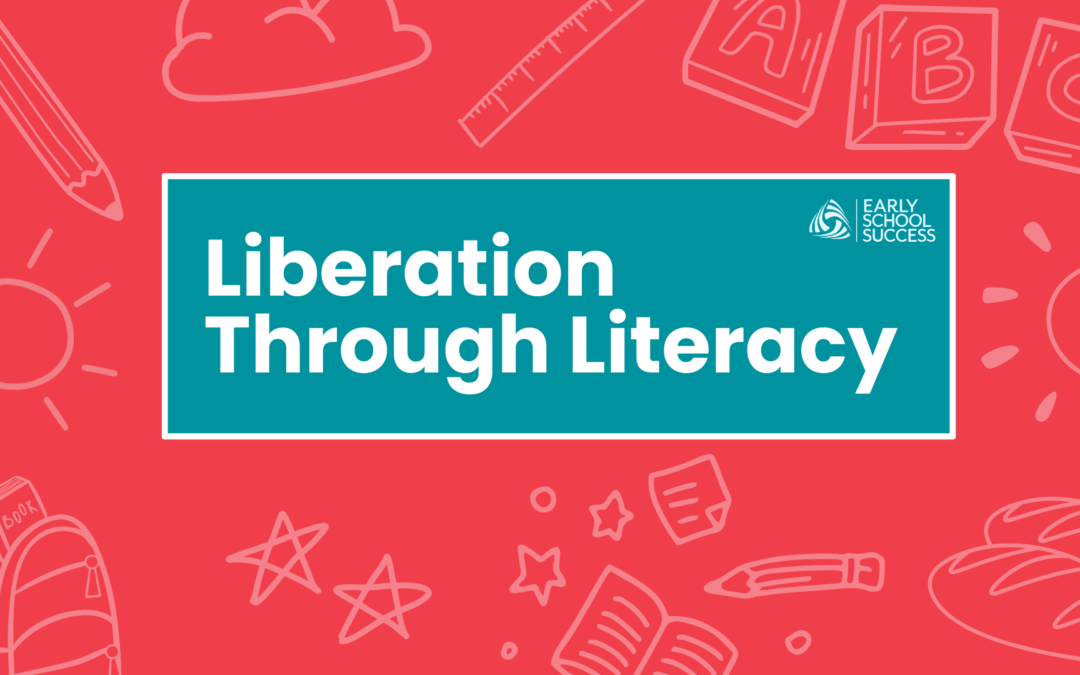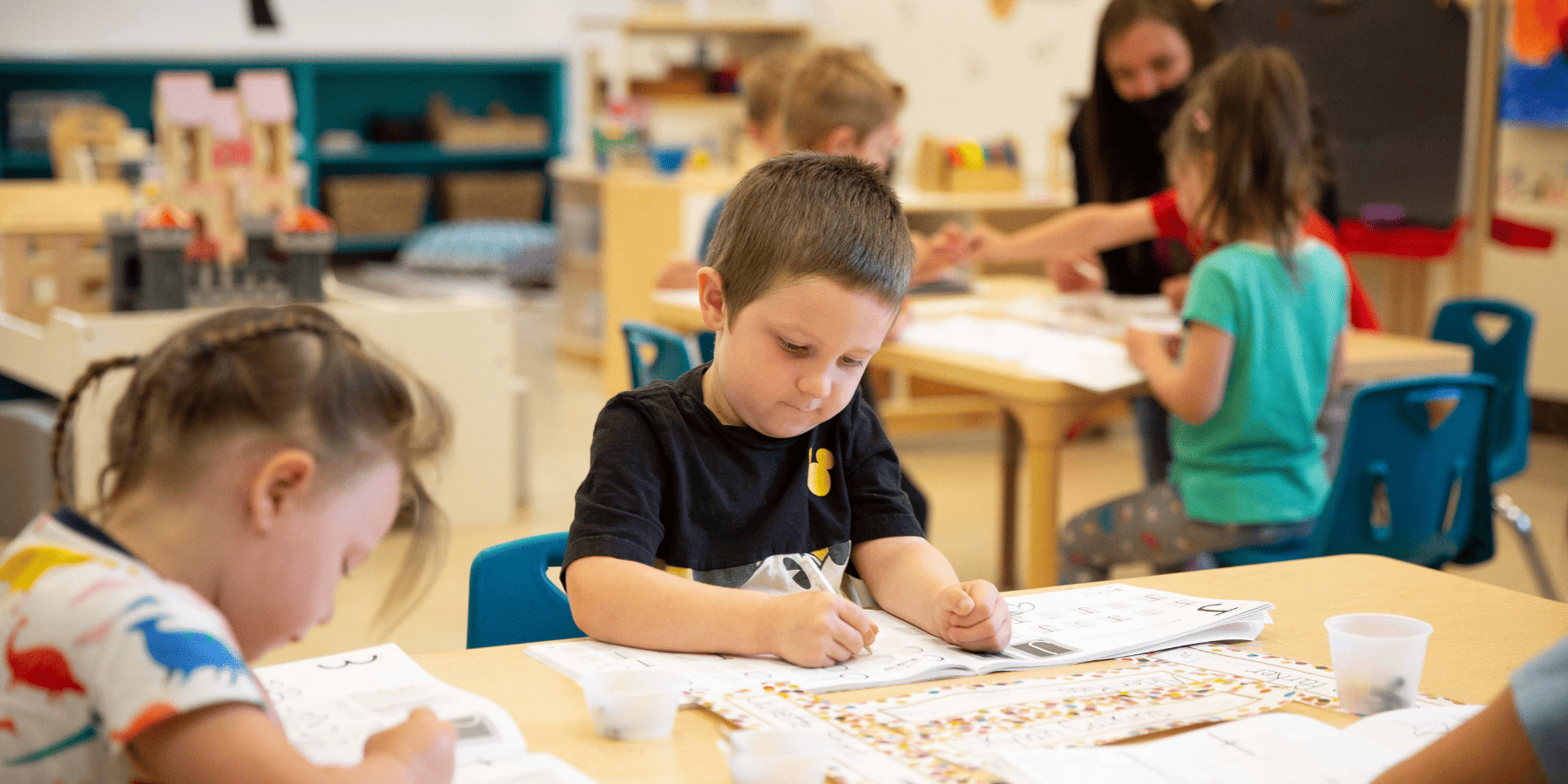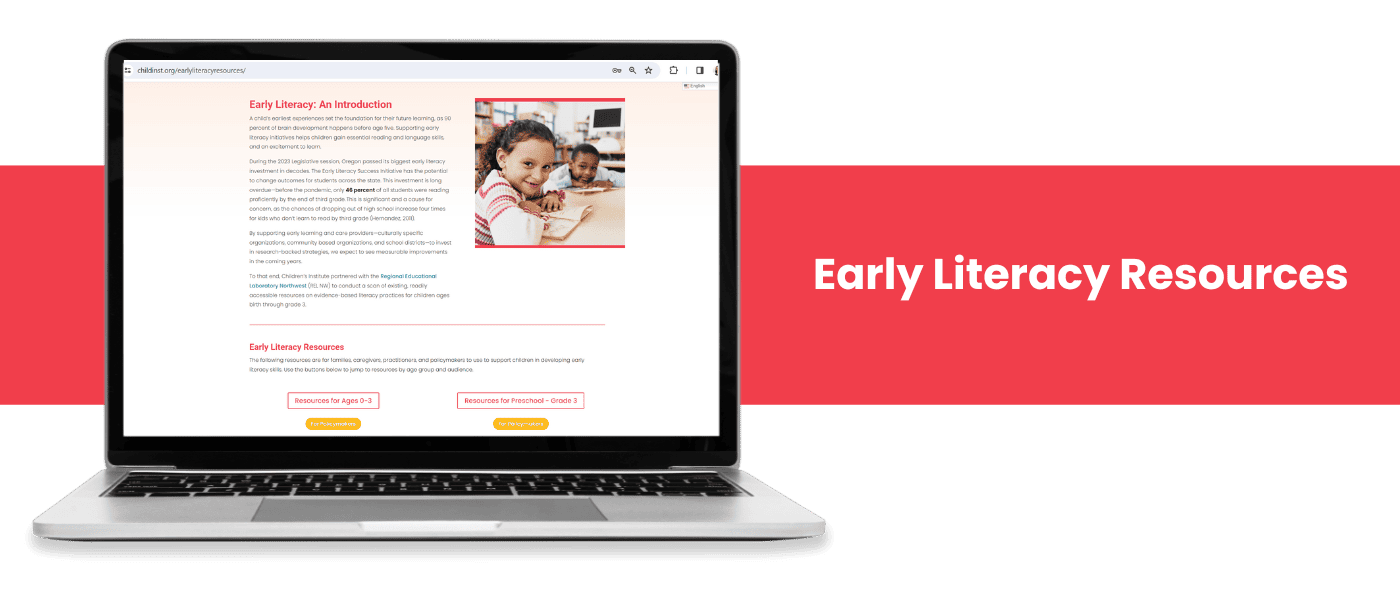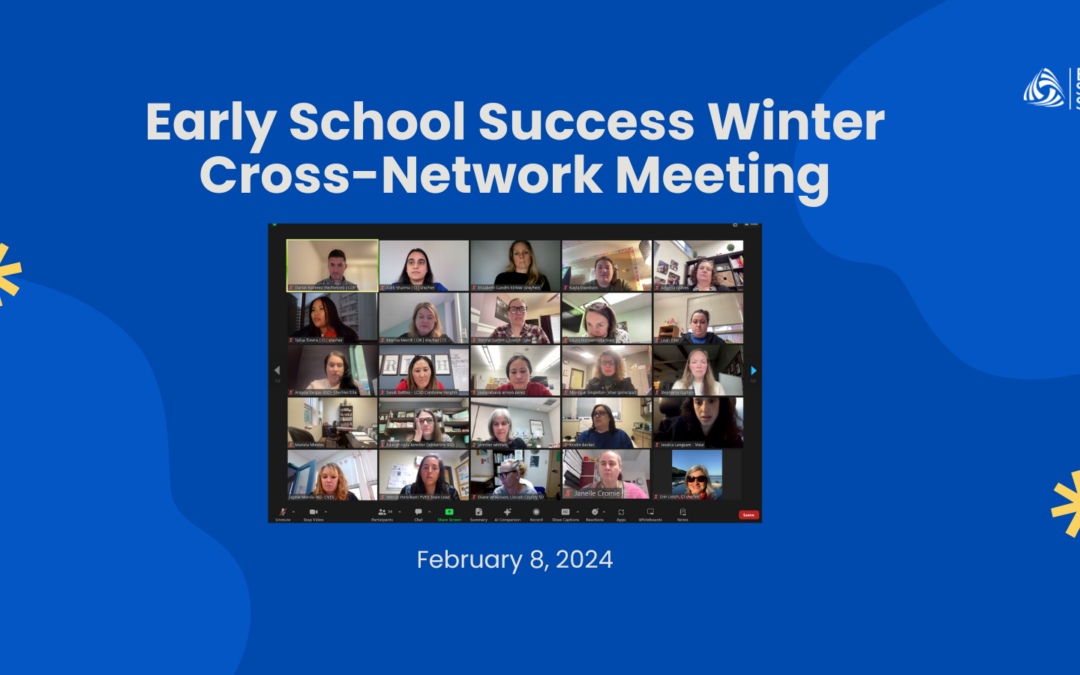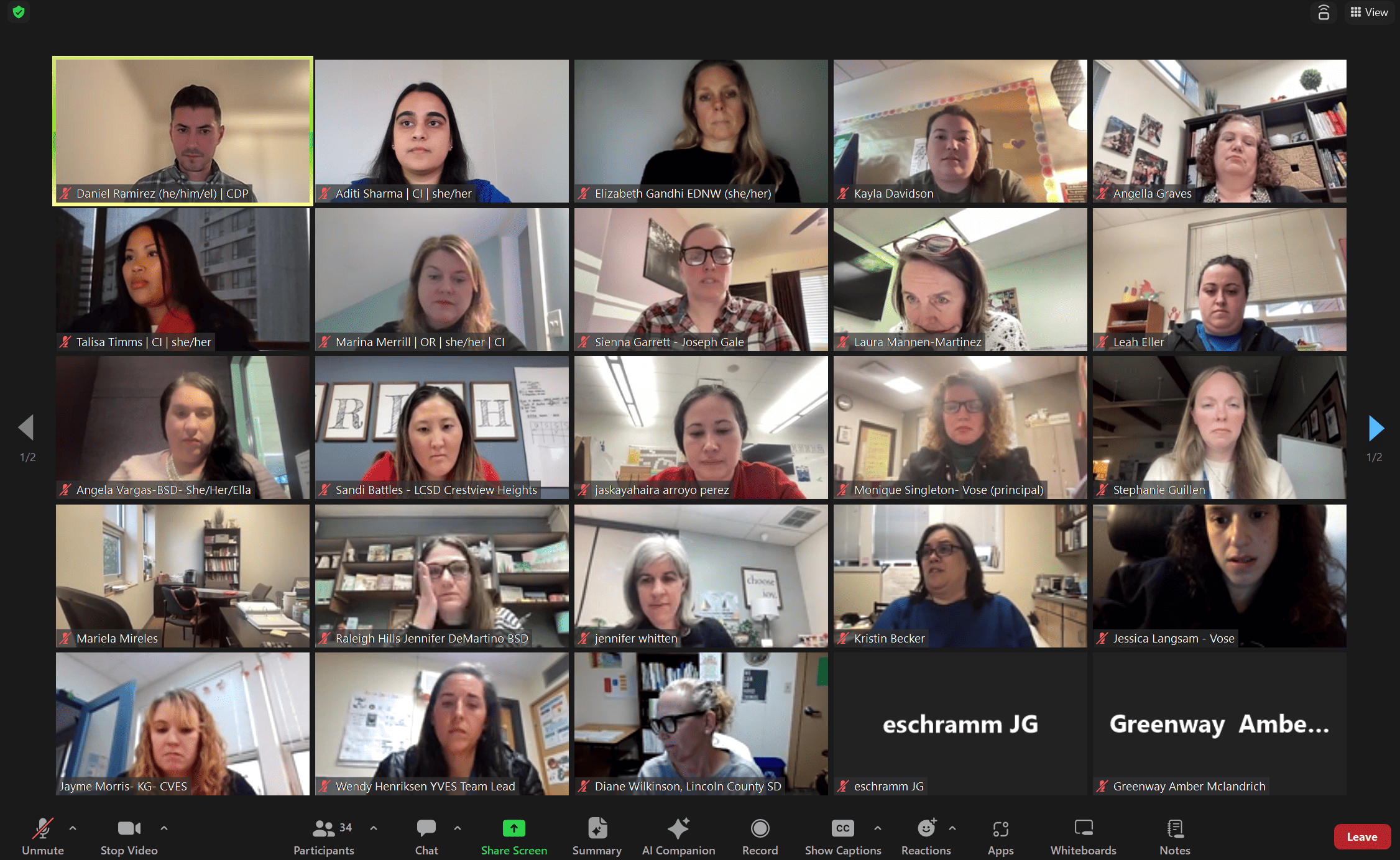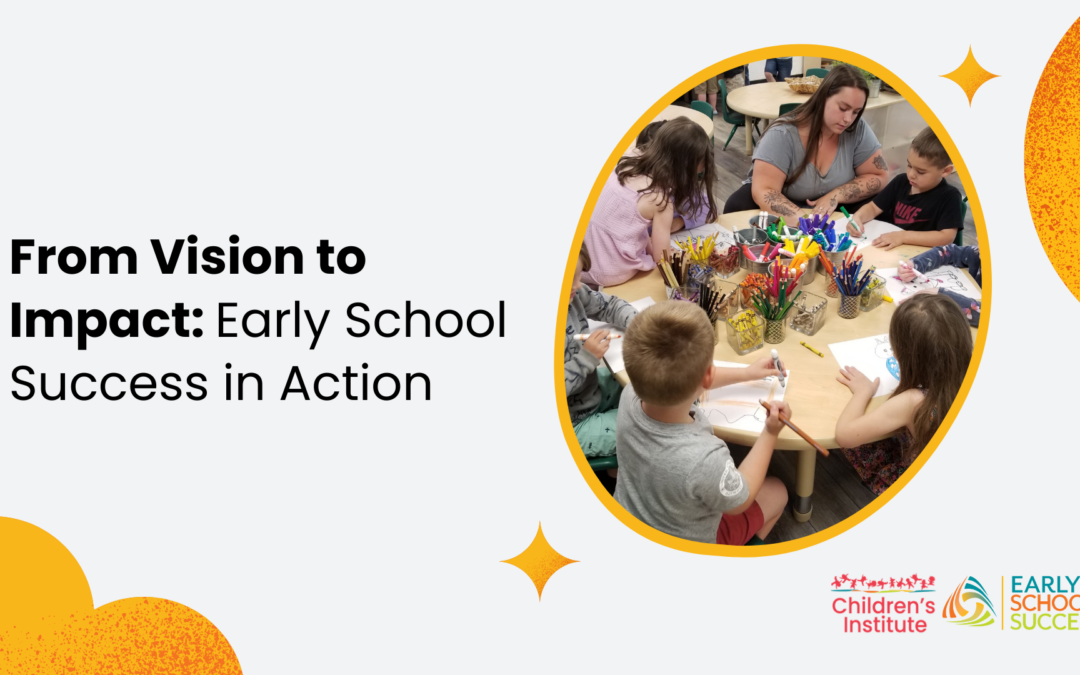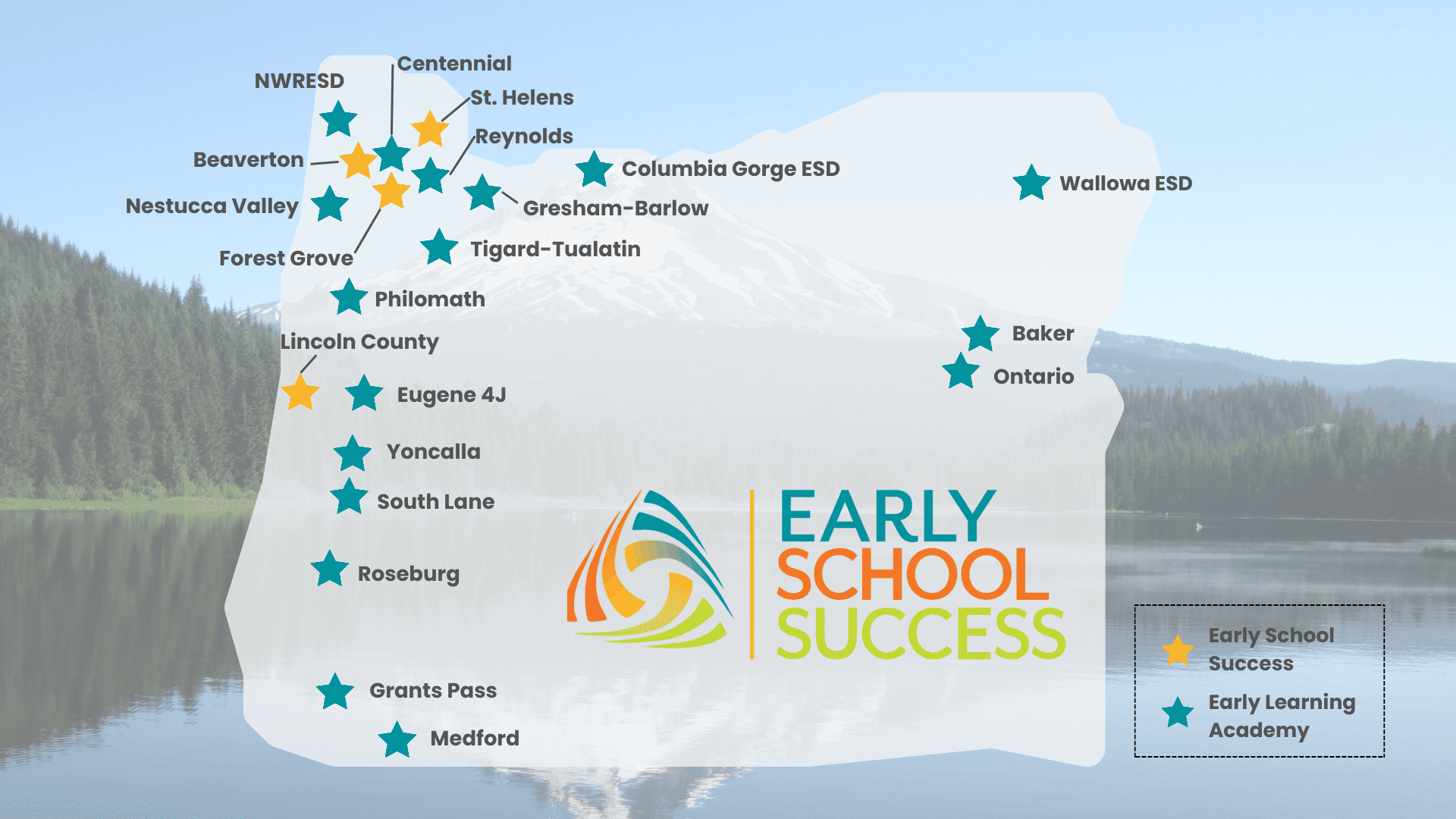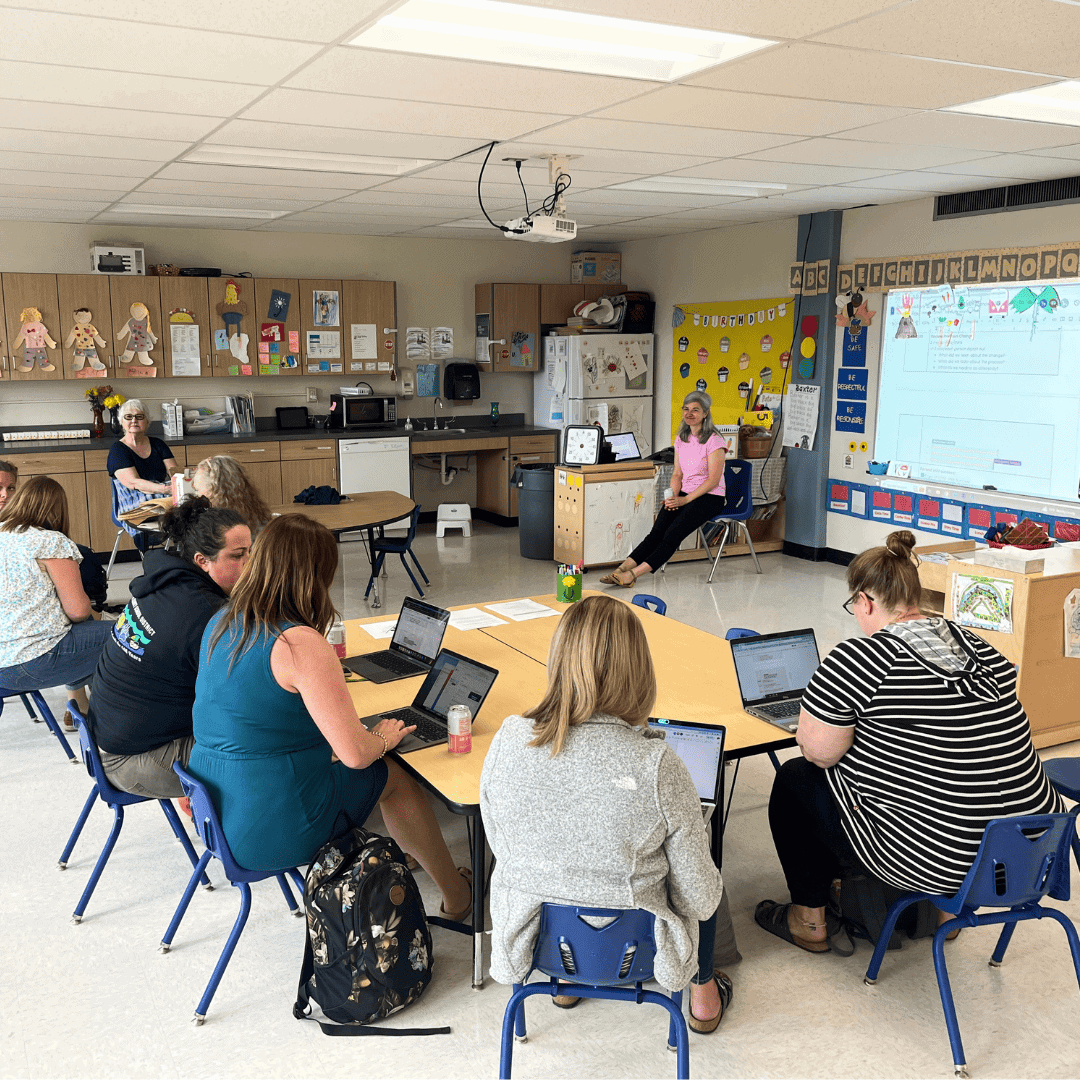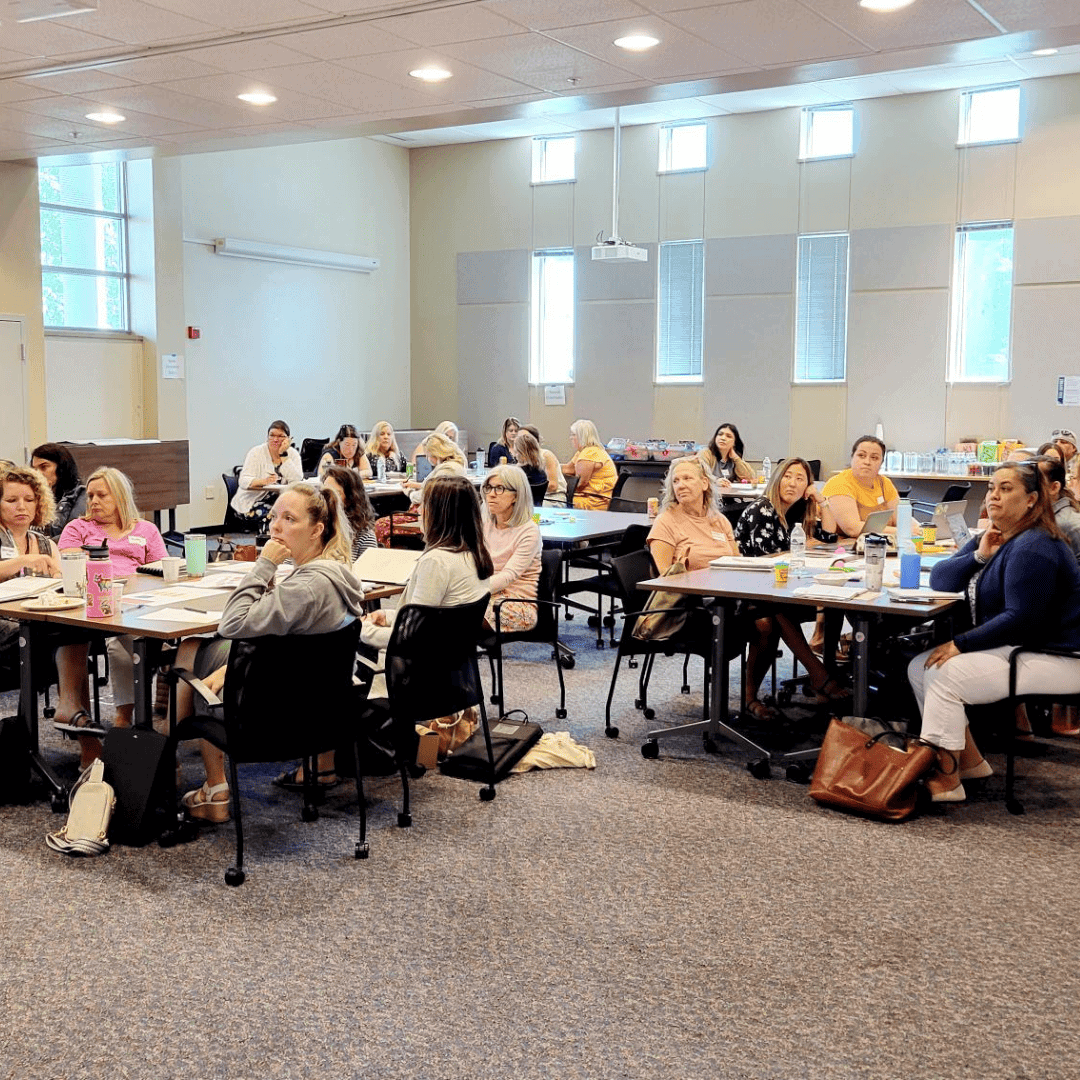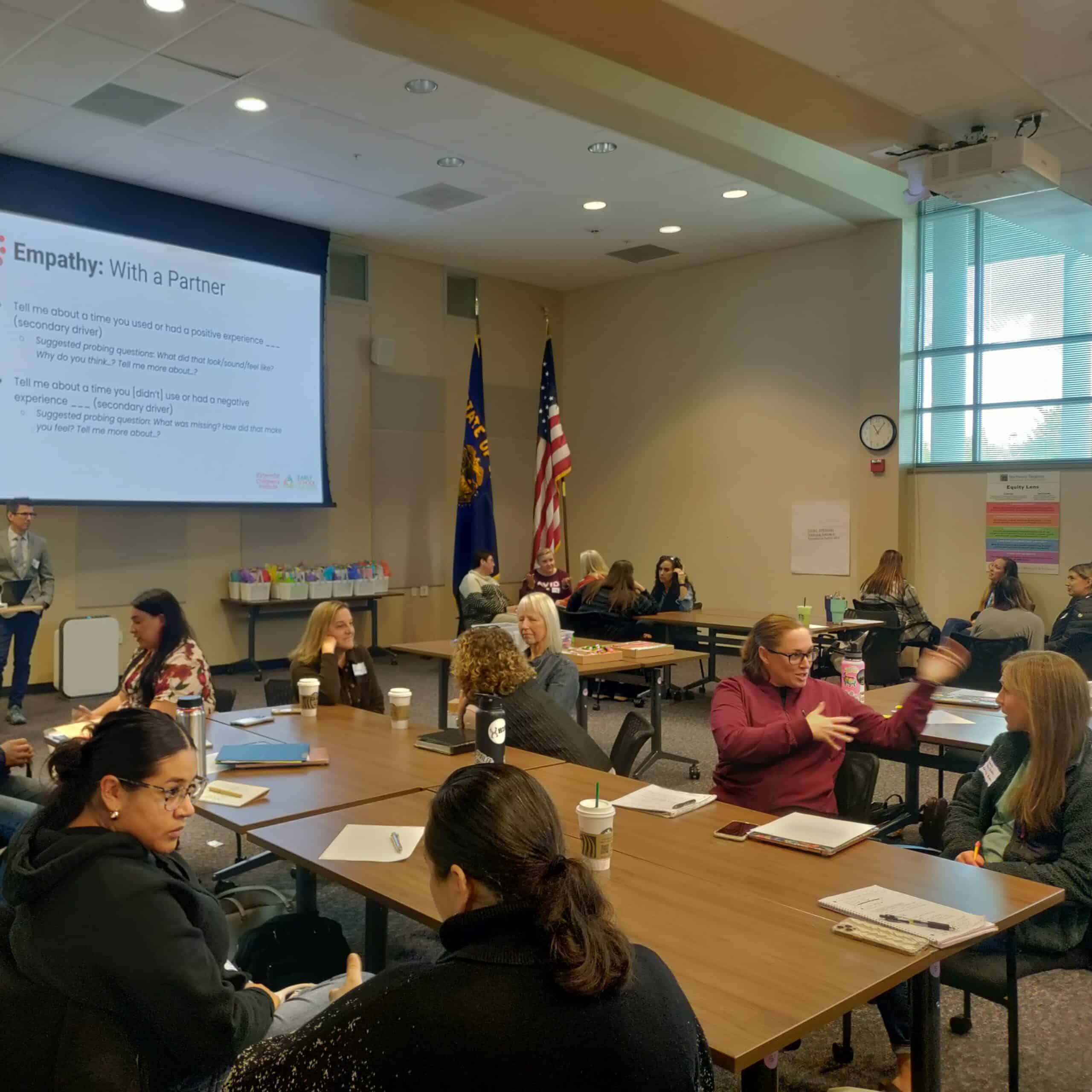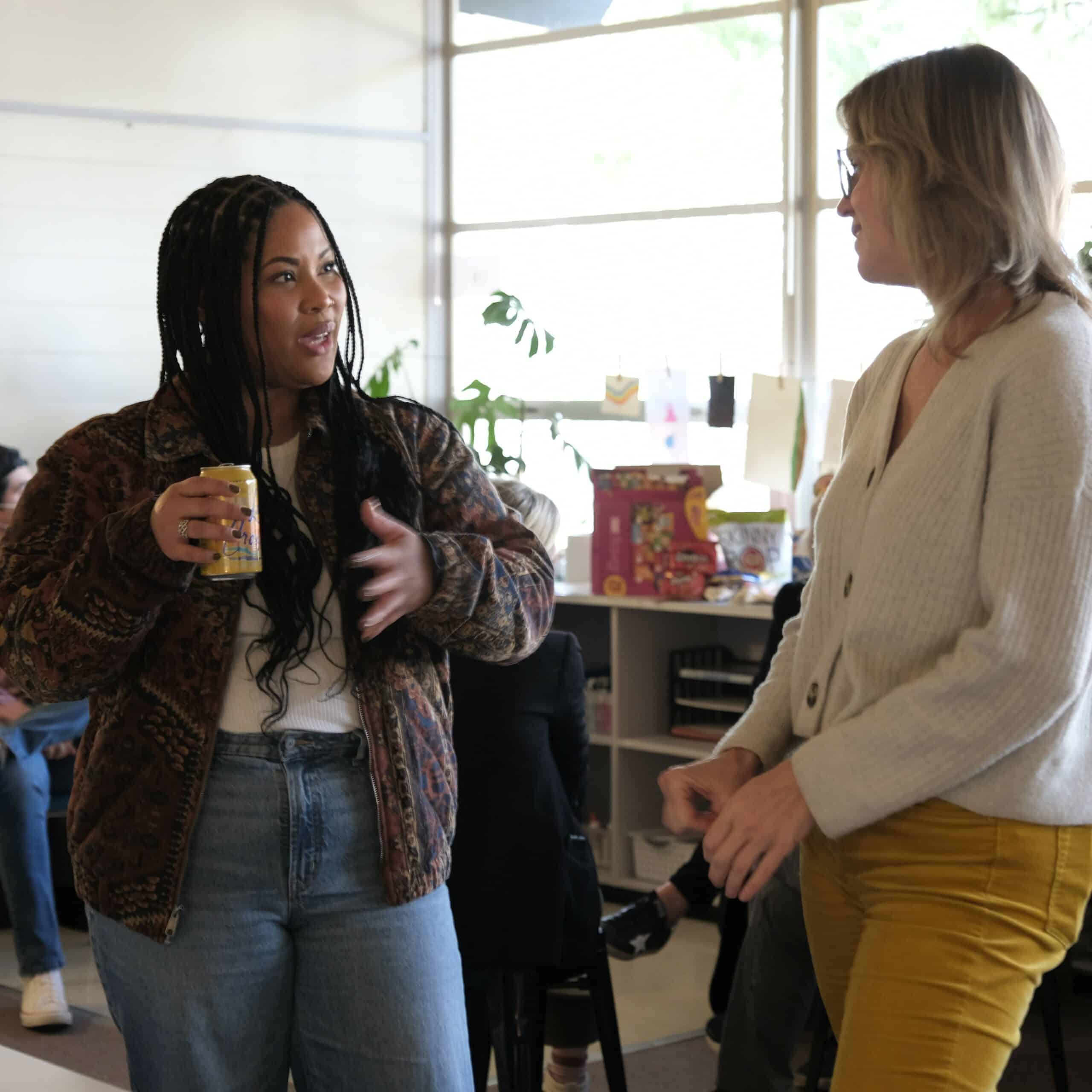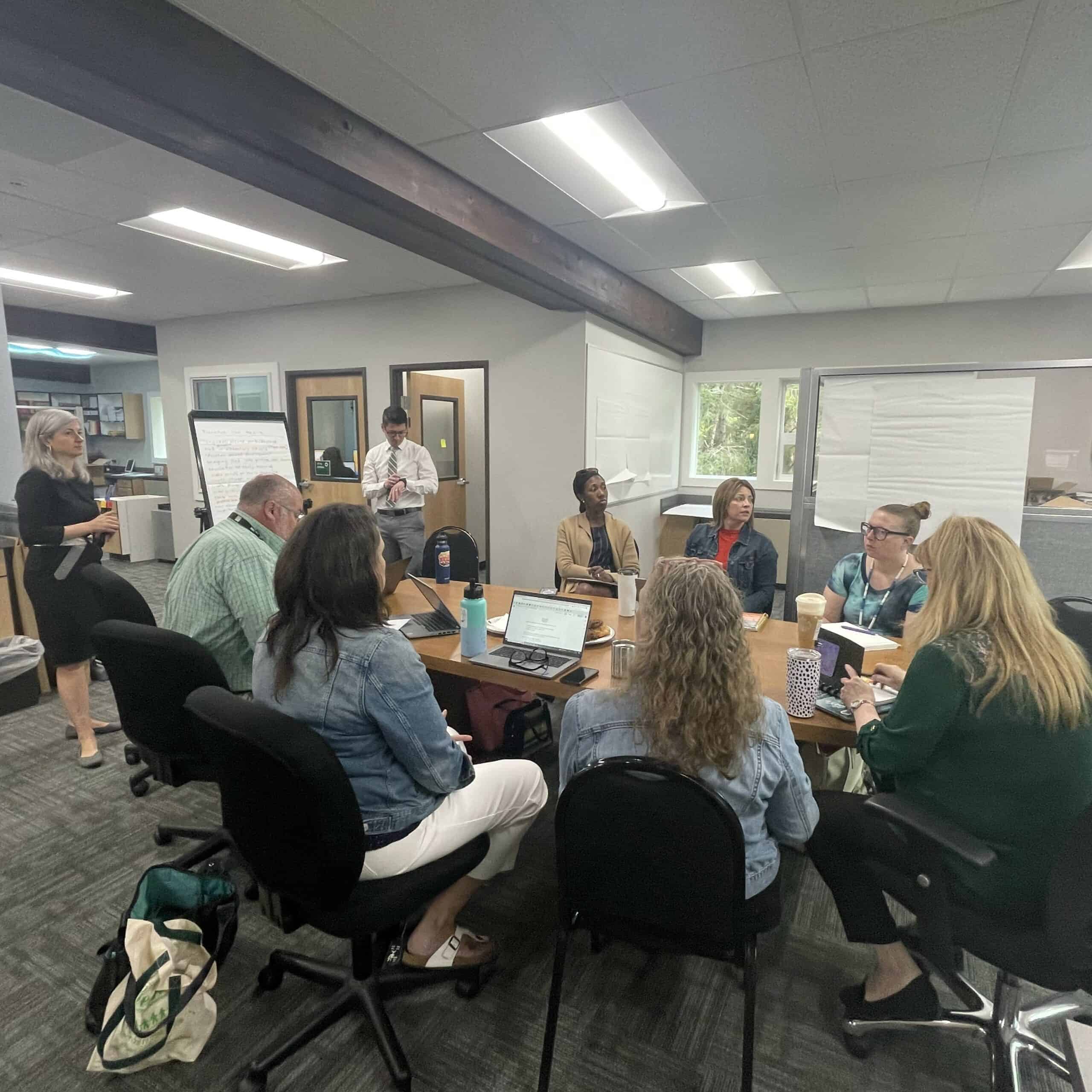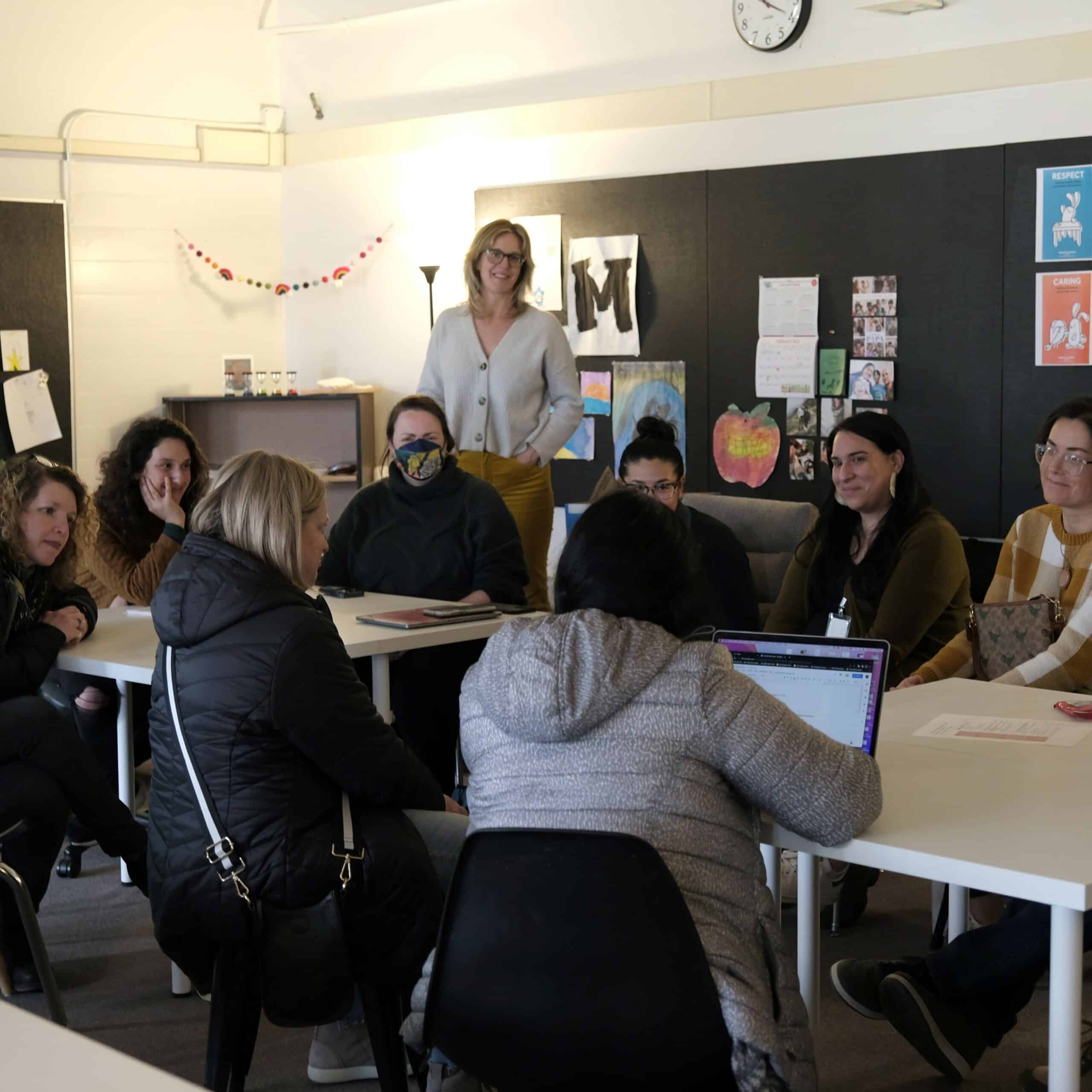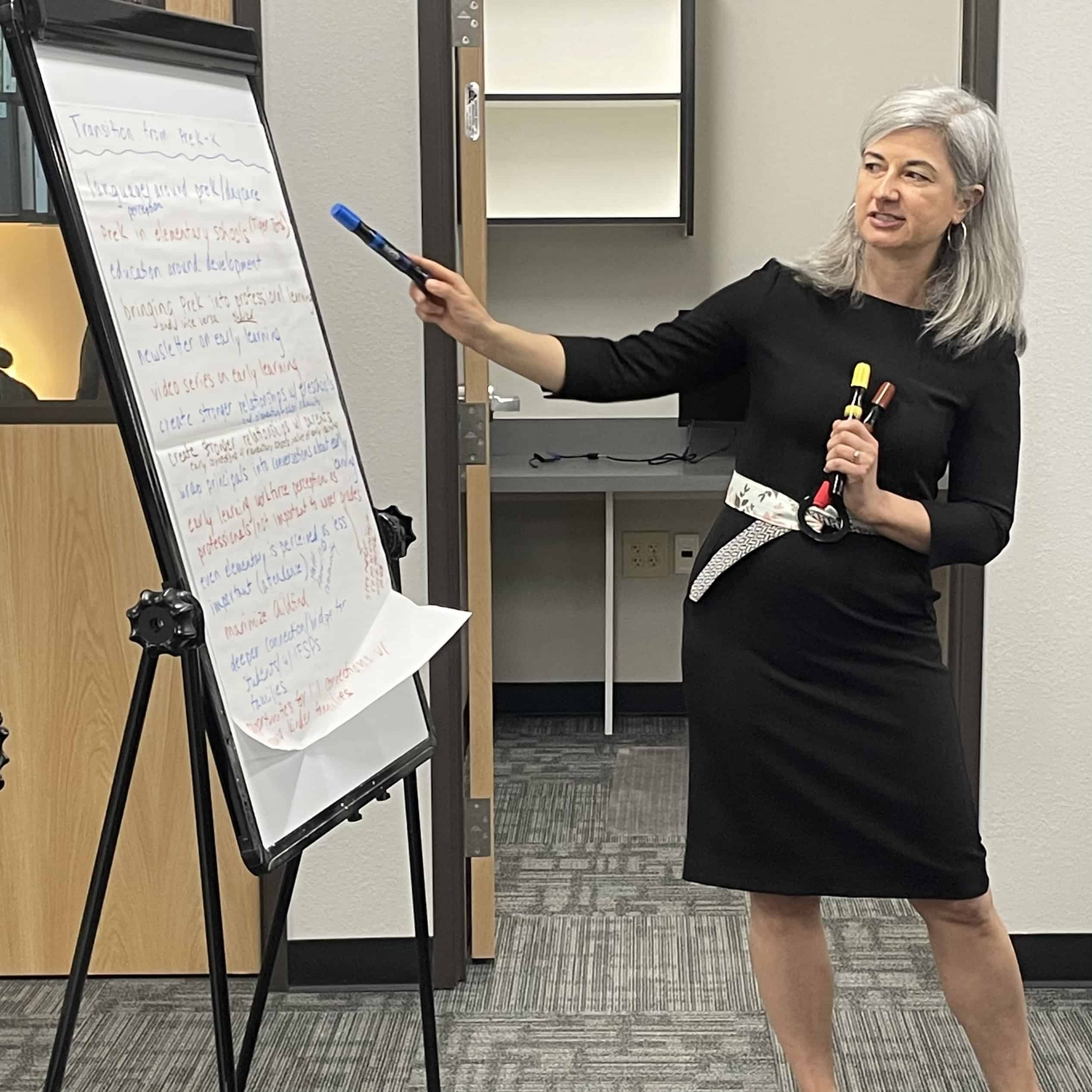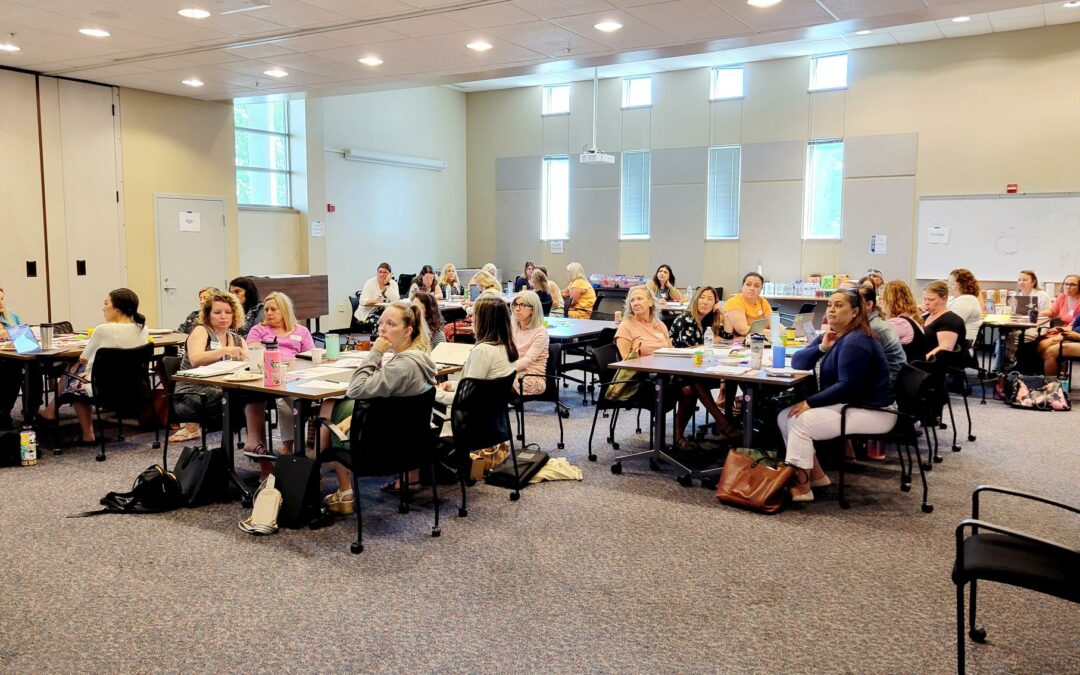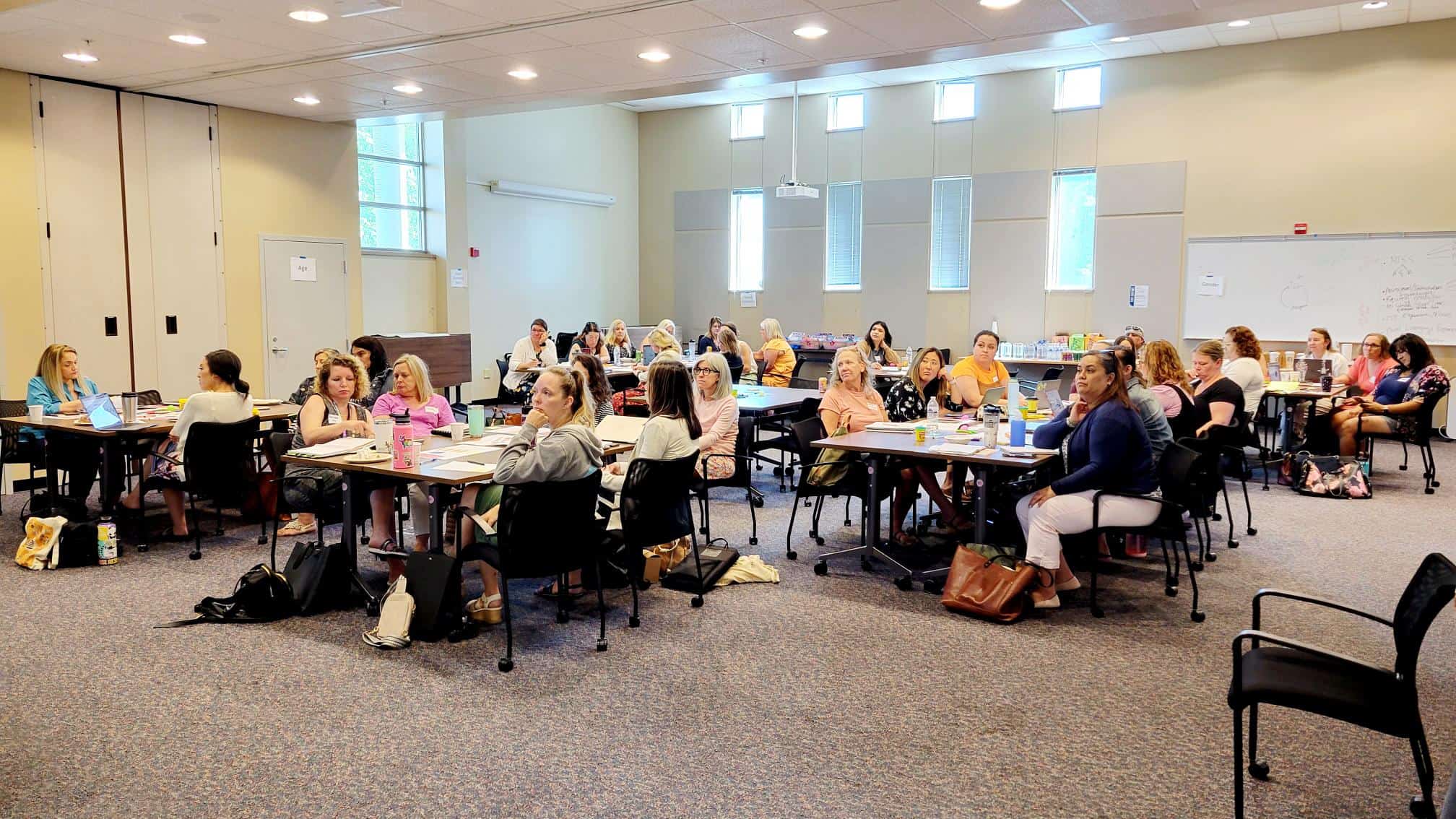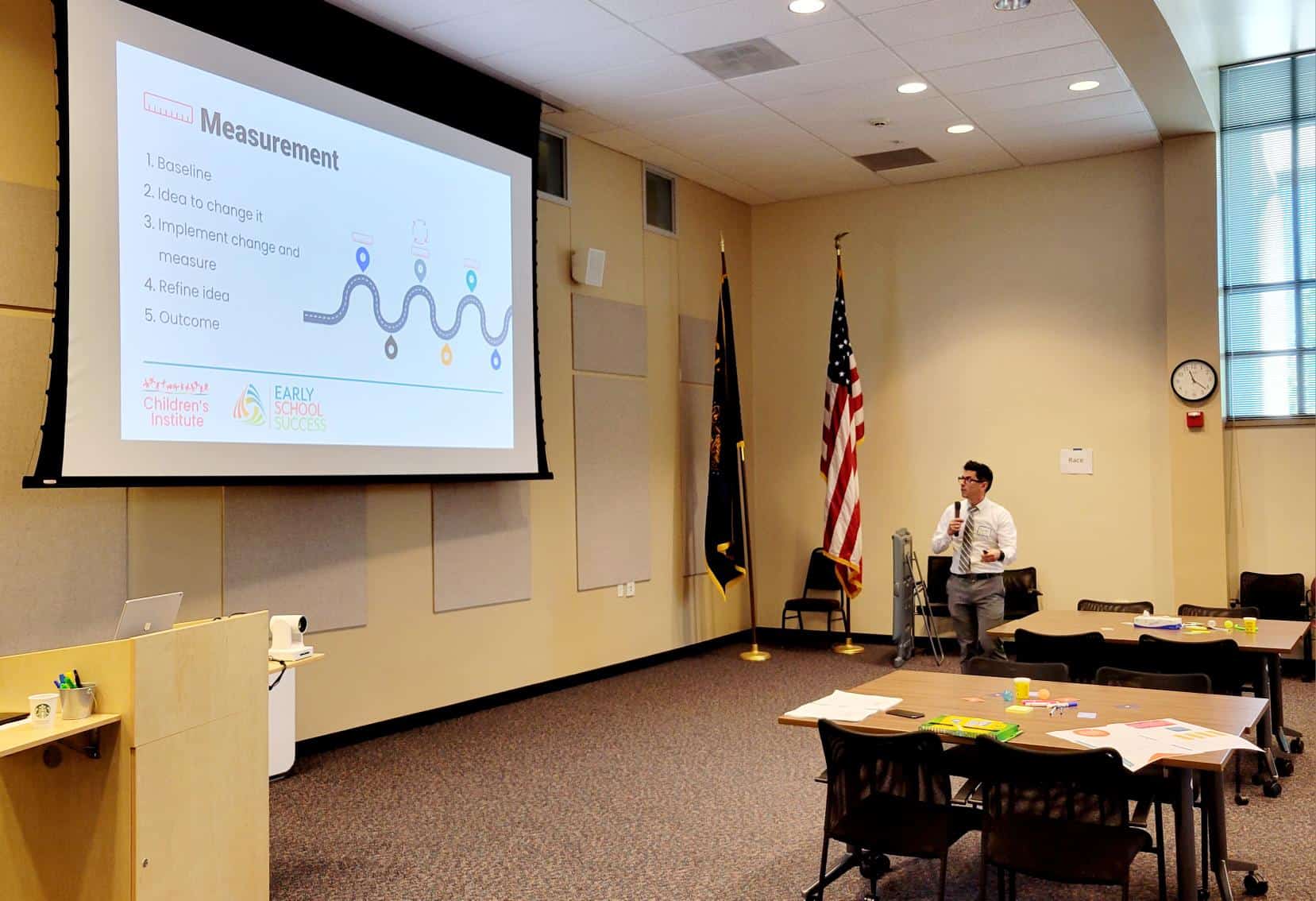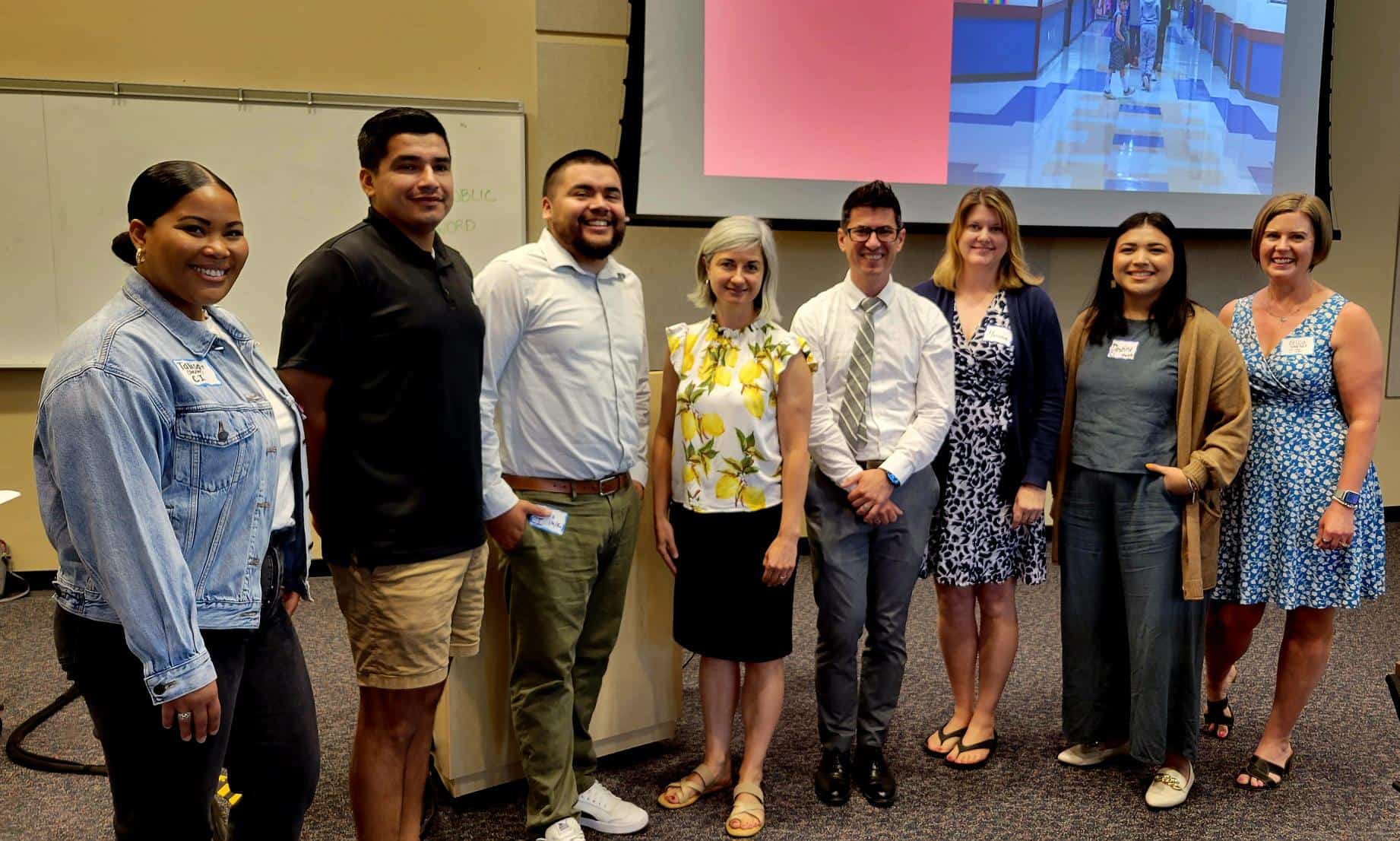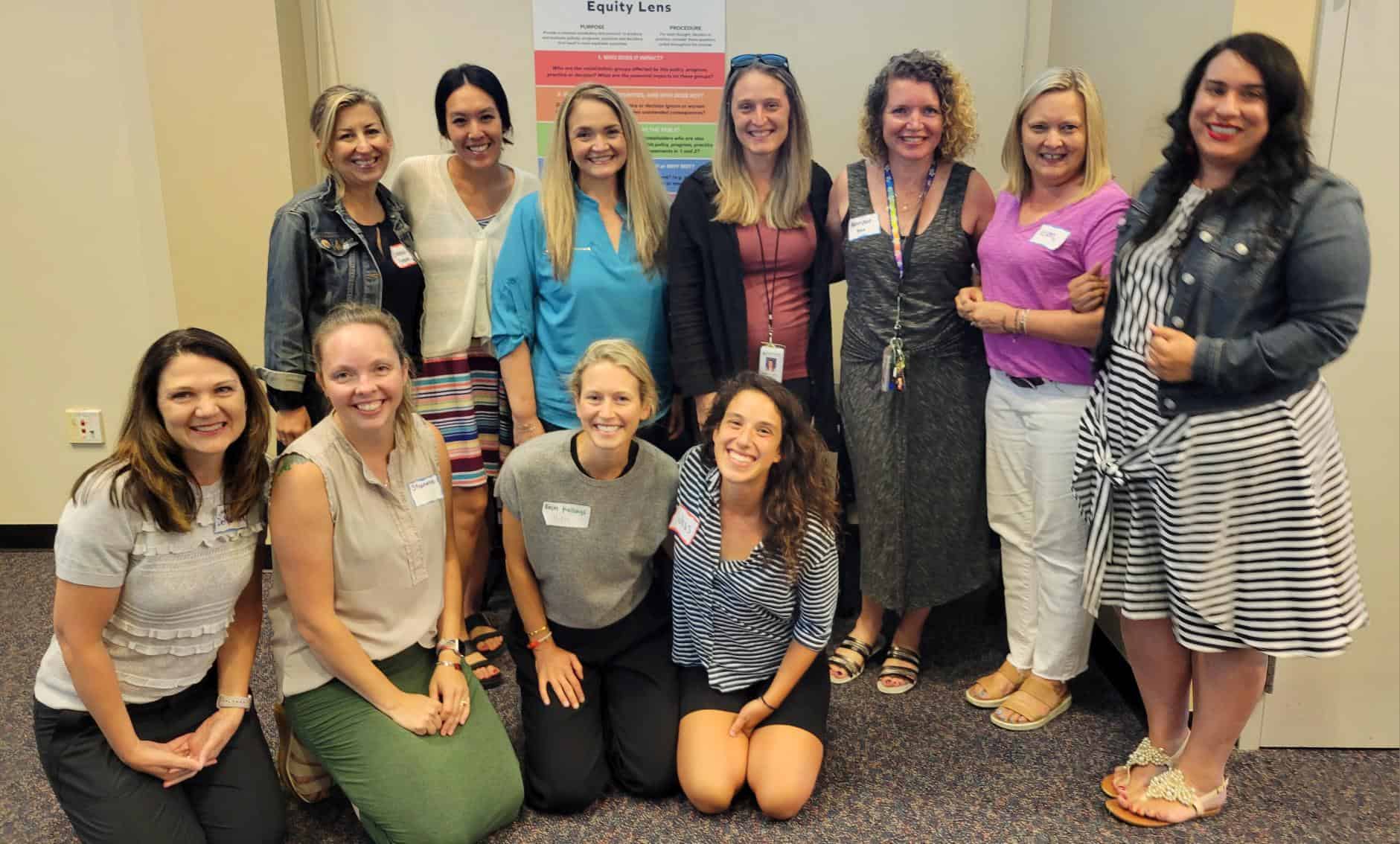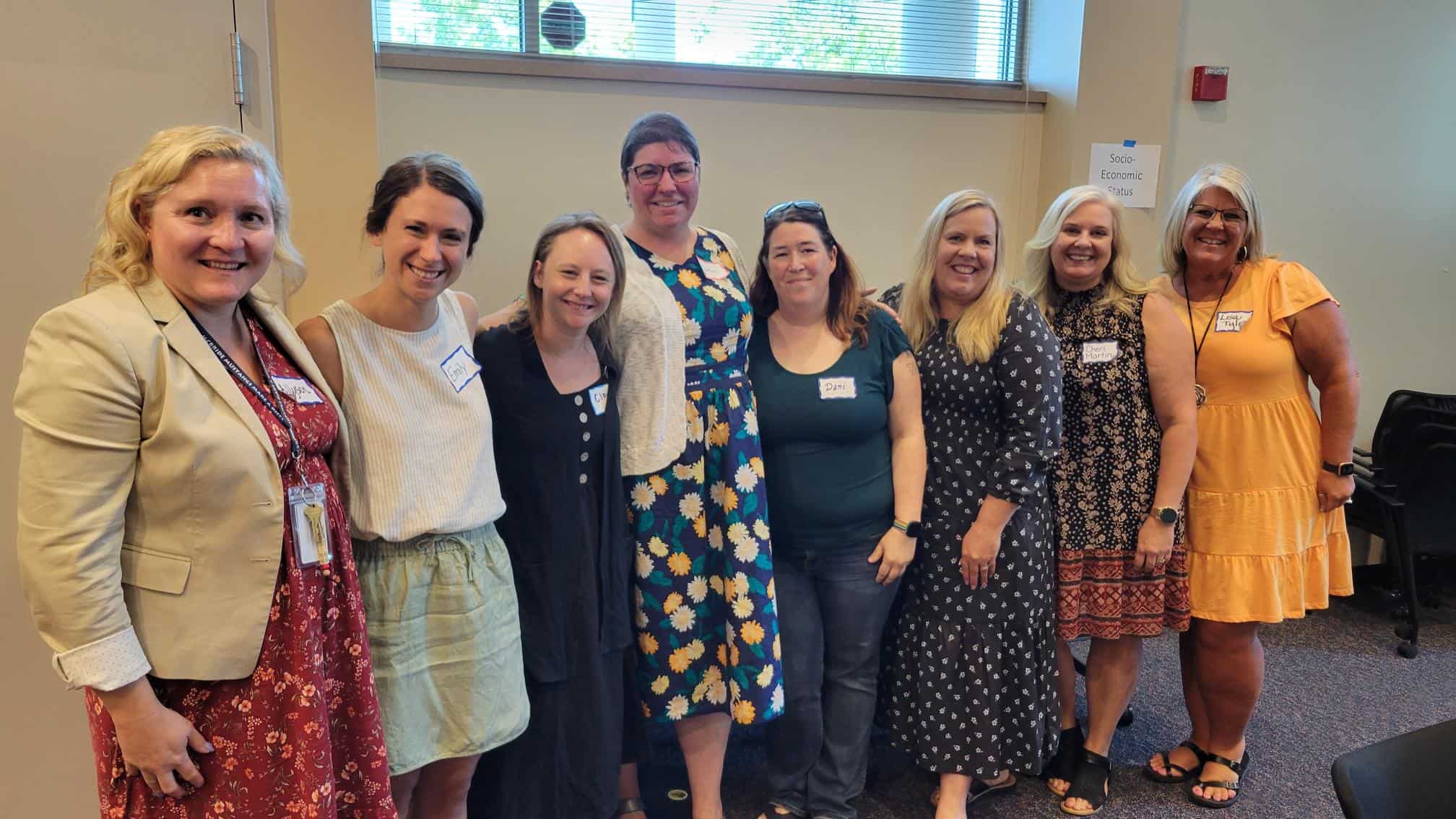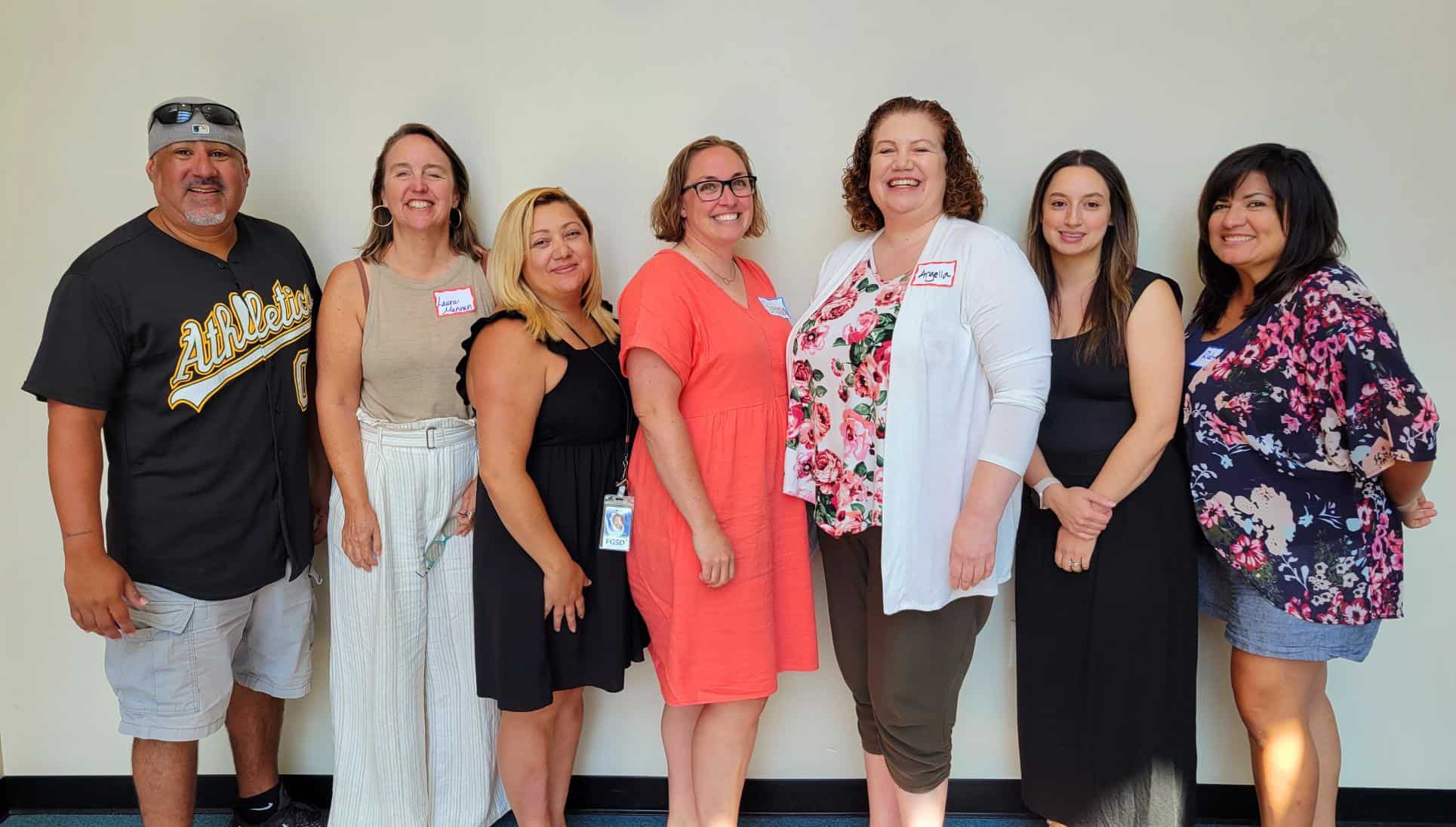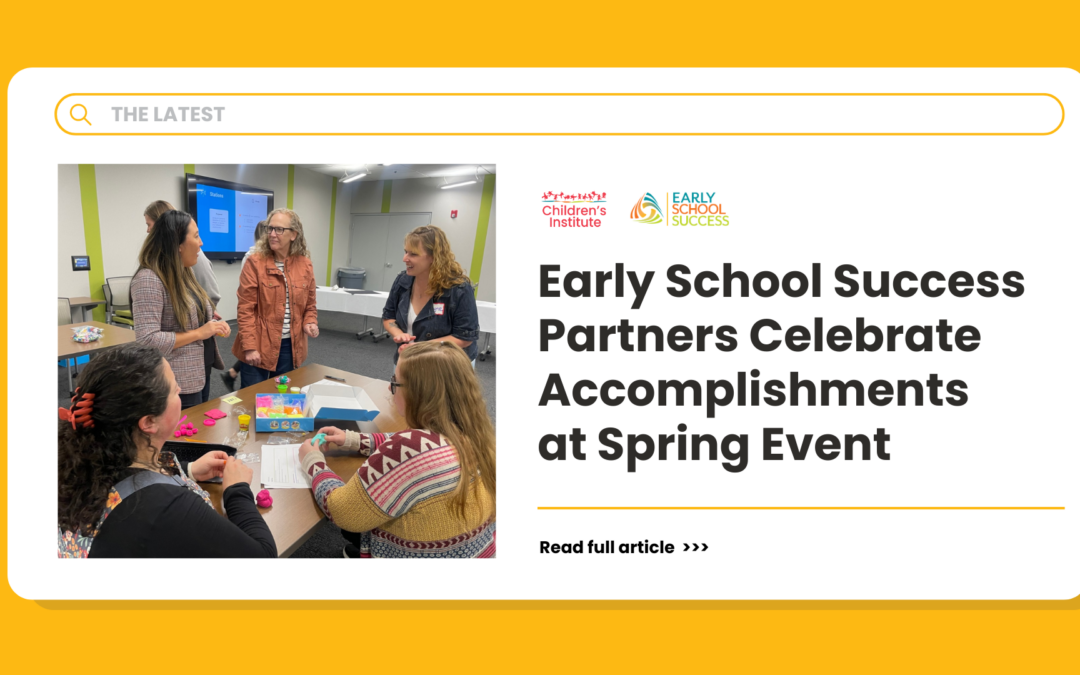
Early School Success Partners Celebrate Accomplishments at Spring Event
The pitter-patter of spring showers gave way to a steady hum of anticipation as Early School Success (ESS) school districts spent the day celebrating collective achievements, reflecting on triumphs and challenges, and envisioning the future of ESS in their school communities, on May 2 at Willamette ESD in Salem, OR.
Throughout the day, participants engaged in a series of hands-on activities designed to both encourage thoughtful conversation among colleagues, and simulate practices that they have implemented in their classrooms. For example, loose parts is an approach to play, based on the idea that when children are given a collection of objects (think pipe cleaners, beads, and buttons) they have more opportunity for engagement and creativity, as they tinker with an array of objects.
Additional stations included watercolors, clay, and musical instruments, with each medium becoming a canvas for self-expression and allowing educators to engage in their own play-based learning.
As attendees thought about their experiences from the past year and built their creations, every design represented their evolving perspectives and aspirations. From embracing multilingualism to fostering inclusive classrooms, each piece of art spoke to the group’s collective vision for student-centered learning.

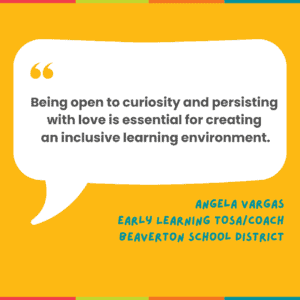

Starla Nelson, principal at Oceanlake, shared that having different materials at the loose parts stations provided freedom of choice and expression.
“Similarly, having a variety of sensory materials in the classrooms can create empowered learning environments for the students,” she said.
Educators also spoke passionately about the positive impact of implementing change ideas in their classrooms. One educator shared that previously reluctant learners in the classroom found a voice and actively collaborated in group activities by using tangible objects to articulate their thoughts.
As the day continued, facilitators guided teams through exercises that emphasized building trust. Participants explored what it means to be student-centered and shared insights and ideas.
“I loved reflecting on the triad of trust. I made connections, learned new ideas, and gained new perspectives,” shared one participant.
Later in the day, teams completed a “dreamspace” activity, which included a lively discussion about the future of Early School Success. Educators also articulated a shared vision grounded in empathy and equity through collaborative brainstorming.
As the day concluded, participants expressed their appreciation through a final activity that embodied the spirit of teamwork and celebrating collective success.
Talisa Timms, continuous improvement specialist at Children’s Institute and one of the event facilitators, shared that she was honored to lead Early School Success teams through a day of reflection, dreaming, and planning.
“I am always in awe of how deeply committed school teams are to improving outcomes and shifting systems for kids, families, and their communities,’ Timms said.
Ultimately, the Early School Success spring cross-network meeting was more than just a gathering – it was a celebration of the unwavering dedication of educators who are committed to shaping a brighter future for students, families, and communities. And as participants departed, their hearts and minds brimming with inspiration, they carried with them seeds of change, ready to bloom and flourish in the days ahead.

Don’t miss the next story! Get news, original reporting, and updates about all things early childhood delivered straight to your inbox.




